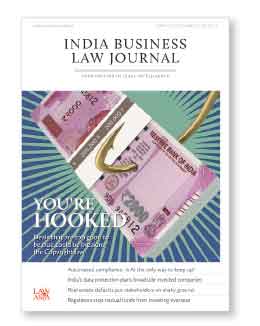Supreme Court gives teeth to copyright penalties
The Supreme Court’s judgment in the recent matter of Knit Pro International v State of NCT of Delhi is likely to assuage the demands of Western nations that have been asking India to put in place dissuasive sanctions for counterfeiters. The court ruled that section 63 of the Copyright Act is a cognisable and non-bailable offence and, in doing so, elevated copyright infringement into a more serious offence compared to forgery and cheating, which are non-cognisable.
For developed countries that seek a clampdown on counterfeiters and sellers of pirated goods in developing nations, such illegal activities result in a loss of sales for their industries, employment for citizens, and ultimately a loss of revenue for government coffers.
Businesses in developing countries, on the other hand, can harness toothless laws to acquire patented technologies and know-how without needing to pay expensive licence fees, or invest in significant research and development, which explains a lack of political will to some degree.

India Business Law Journal
Given that developed blocs such as the EU have decried that widespread IP rights infringements take place in India, this ruling will allow foreign and domestic companies to go after counterfeiters more aggressively. Cognisable offences are more serious in nature and include murder, rape, kidnapping, dowry death, etc.
For such offences, the police can make arrests without warrants. Also, those arrested cannot be released from custody as a right, and have to apply for bail before a court. The judgment has the potential to disrupt the revenue sources of organised criminal groups.
Our Cover story looks at a novel confidence scam where the tricksters impersonate company officials and target potential business partners promising dealerships and franchisees. Established brands have already been targeted. Even our authors’ company’s online presence was impersonated, and it was recently able to secure an injunction against fake websites at Delhi High Court.
Our Briefing looks at the churn taking place in the IT sector with a large number of tech workers switching jobs and joining rival companies. Seeking to prevent staff from doing the same, Infosys, the second-largest IT company in the country, is using the non-compete clause in its employment contract. However, as per the law, the clause is void and unenforceable as employees are free to pursue a lawful business, trade or profession of their choice. Yet IT companies hold on to the clause in order to exert influence over workers, a large number of whom may not be aware of the law’s implications.
Our story Condition critical visits the Future Retail acquisition deal that went sour and devolved into a tug-of-war between Reliance and Amazon. Lenders of beleaguered Future, with its outstanding loans of USD1.2 billion, were seeing hopes evaporate of recovering even a small amount of their dues, while Amazon filed an injunction against ongoing insolvency proceedings at the National Company Law Tribunal. The dispute has seen many twists and turns, and we keep you up to speed.
In Perverted priorities, we cover yet another challenge to user privacy on the internet. India’s CERT-In, which works under the Ministry of Electronics and Information Technology, has framed rules that require cloud services, virtual private server and virtual private network (VPN) service providers to record user details. The move defeats the purpose of VPNs, which are meant to provide anonymity online, and some prominent VPNs have chosen to pull out of the country.
In Spotlight we shine a light on e-signatures, which have remained a great idea on paper for a long time, but received a boost during the pandemic. Our article tracks the growth of the market, the enabling regulatory frameworks and the question of paying stamp duty, which adds an analogue element to an otherwise digital process. E-signatures undoubtedly speed up turnaround times for deals, but the transition won’t happen overnight and there will still be parties that insist on signing physical copies.
This month’s Intelligence report presents India Business Law Journal’s selection of the top foreign law firms for India-related work. Now in its 16th year, the report draws on an analysis of more than 600 law firms from every continent that have recorded deals and disputes with an Indian connection in the past 12 months.
This year Cleary Gottlieb and Kirkland & Ellis are notable entries for making an entrance into the Top 15. The firms were behind some of the biggest deals and disputes that happened in the country, with Cleary being counsel to Goldman Sachs on the USD8 billion Renew Power de-SPAC transaction. The firm’s India practice has been credited for being “technically excellent, alert and responsive to clients’ needs”.
Kirkland acting for Sun Pharma and its US subsidiary, Ranbaxy, in their defence of class action litigations asserting more than USD10 billion in damages against antitrust and corruption claims. A client from Blackstone says the firm’s FCPA practice is “well organised, effective and provide extremely commercial advice”. Well done to all our top foreign firms.


























